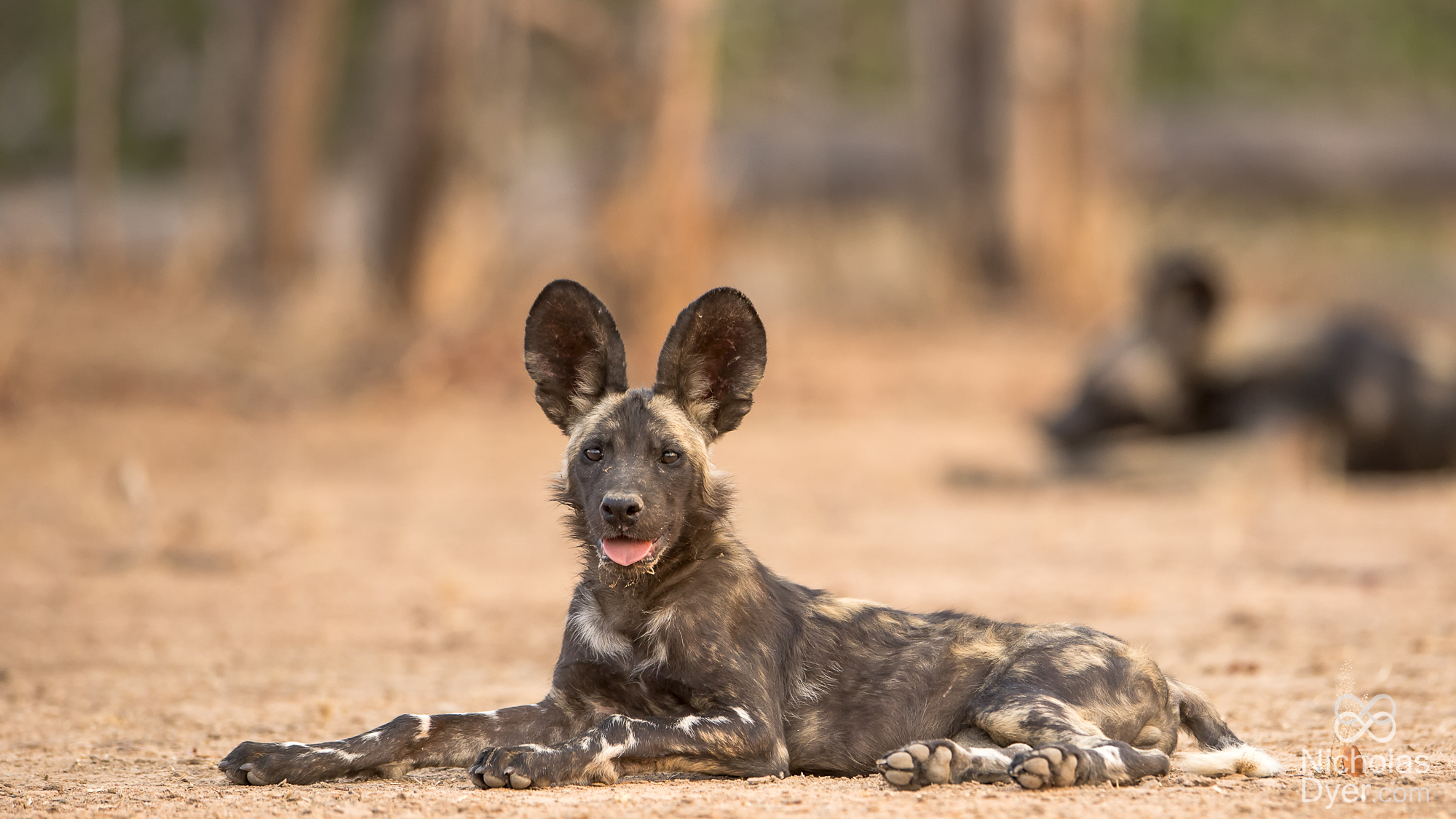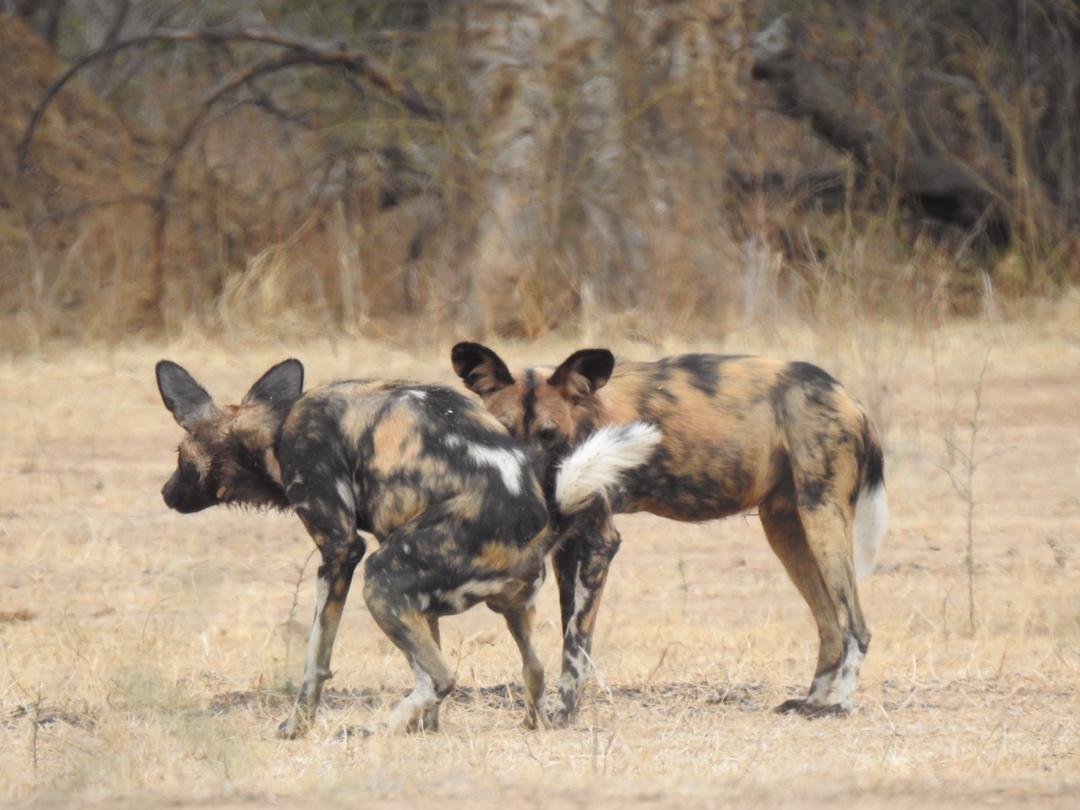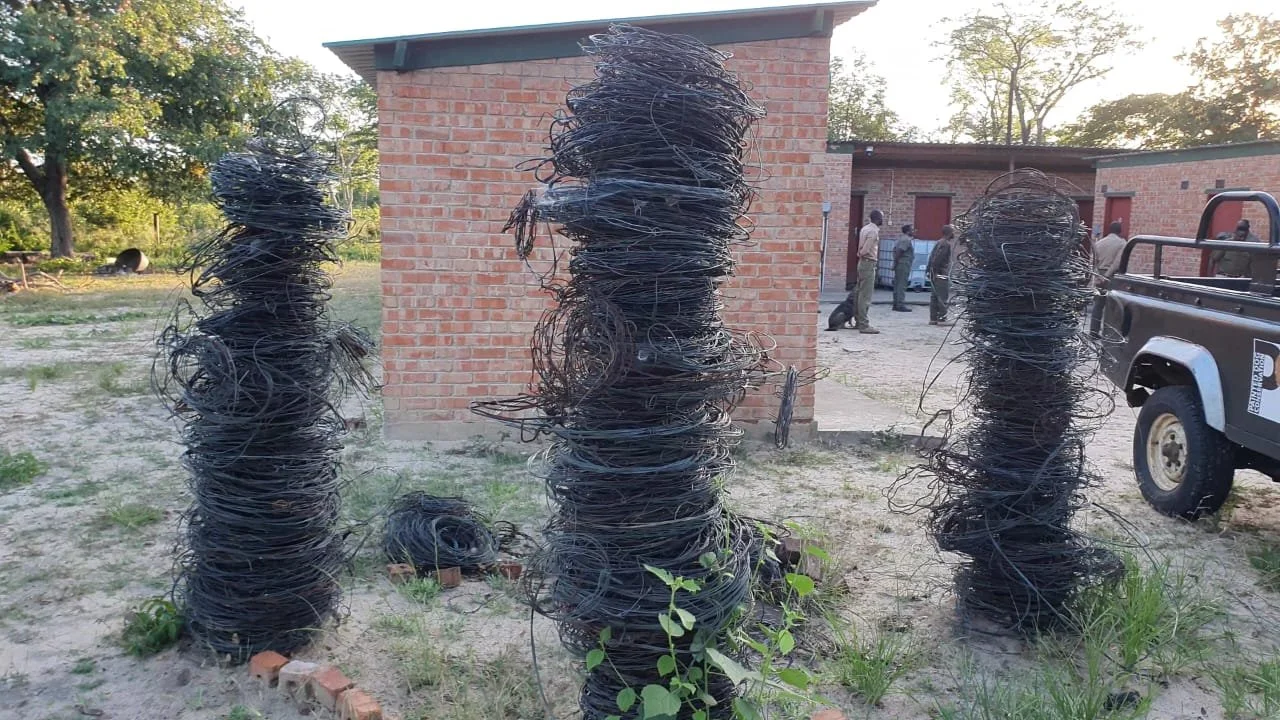
News Updates
PDC Annual Report 2023
2023 was a year when we really saw the impact of the work we have undertaken during the past 25+ years. For the first time ever we have seen three if not five packs of painted dogs utilising the buffer zone in our core operating area. Three packs denned in the area and we deployed the full extent of our resources to try and protect them, which was successful on the whole but not without tragedy.
2023 was a year when we really saw the impact of the work we have undertaken during the past 25+ years. For the first time ever we have seen three if not five packs of painted dogs utilising the buffer zone in our core operating area. Three packs denned in the area and we deployed the full extent of our resources to try and protect them, which was successful on the whole but not without tragedy.
Notes from the Field: Denning and Inbreeding
The tale of the Mpindothela has taken a better twist this time around. Clara, the pack's alpha female, now has pups, and the pack is denning. The Mpindothela pack is a merger of the four males from the Mathathela pack, which used to roam near our headquarters in Dete and the four remaining females of the notorious Mpindo pack.
Clara earlier in the year
The tale of the Mpindothela has taken a better twist this time around. Clara, the pack's alpha female, now has pups, and the pack is denning. The Mpindothela pack is a merger of the four males from the Mathathela pack, which used to roam near our headquarters in Dete and the four remaining females of the notorious Mpindo pack. The pack formed when we released the Mpindo females to join the waiting males outside our Rehabilitation facility last year.
Looking back, since the pack was formed, the Mpindothela lost its alpha male Khule to a lion attack and a promising female MaDube to a road accident. Their future looked bleak following these incidents. The pack regrouped well, and now with pups comes new hope for the pack and the painted dog population in Hwange.
Pregnant Clara feeding with her pack
In Mana Pools, Boas, the son of Taku and Tafara (born 2020) of the Rucomecci pack, has joined the Nyamepi pack with a male we believe to be his brother, Dickson. In the video below shot by our researchers in Mana Pools, Boas and alpha female Whisky are mating.
Boas and Whisky Mating
While, on the one hand, it's good to see "new" males join the Nyamepi pack after the disappearance of alpha male Gamma in early May and the other four males, it is still a concern because Taku and Whisky, are sisters. So Boas is a close relative, indeed nephew of Whisky.
This continues a worrying trend in Mana pools of an apparent lack of "new blood" migrating into the area.
Boas and Whisky
Keeping Up with the Dogs
The dog stories for the period are a mix of both good and bad news. Most of you would know about the Mpindothela pack, a merger of the four males from the Mathathela pack which used to roam near our headquarters in Dete and the four remaining females of the notorious Mpindo pack. The pack was formed when we released the Mpindo females to join the waiting males outside our Rehabilitation facility last year.
A happy pack of painted dogs by Nicholas Dyer Photography
The dog stories for the period are a mix of both good and bad news. Most of you would know about the Mpindothela pack, a merger of the four males from the Mathathela pack which used to roam near our headquarters in Dete and the four remaining females of the notorious Mpindo pack. The pack was formed when we released the Mpindo females to join the waiting males outside our Rehabilitation facility last year.
Tragedy struck when Chenai, the seeming alpha female, was run over and Peace, one of the males, disappeared. This was quickly followed by the death of the male Khule and suddenly the pack was only five in number.
The Mpindothela pack
The pack separated soon after Khule’s death. The females Madube and Clara spent a lot of time near our Rehab facility, making frequent ‘visits’ to villages nearby to predate on goats. Despite the losses we are very delighted to report that the community responded positively. They did not kill or harm the dogs. We worked closely with the communities involved, Mabale, Dopota, Lupote and Magoli, as well as the community anti-poaching volunteers to safeguard livestock as well as keep the dogs safe.
A fellow stakeholder, Soft Foot Alliance has been piloting an earth regeneration project in a small area of Mabale and has been promoting group herding and bomas for livestock. It is interesting to note that none of the households partaking in this Soft Foot Alliance’s program lost goats to painted dogs or any livestock to any wildlife.
Community Ant-poaching Volunteers helping our Research and Anti-poaching team
In light of this and with some insights from the Tusk Symposium that we recently took part in, which emphasized working together to build resilience in conservation, we are exploring opportunities and possibilities of collaborating with Soft Foot Alliance. The aim is to expand their programs outside of Mabale village into all the villages in our core operating area. Their programs are proving to be effective in reducing human-wildlife conflict and we believe we can do more for both painted dogs and the community by working together with Soft Foot Alliance.
The Batsha pack
In Sinamatela, our base tracker Washington Moyo reported a new pack composed of two females and two males which, he named the Batsha pack, meaning ‘the new pack’. He sighted the pack for the first time in the Kashawe concession in Sinamatela. Upon investigation, he discovered that the two males are Lifa and Dela, once with the Lukodet pack and they had dispersed in 2021. The two females, Zizi and Rocco, are also dispersals from one of the well-known packs, the Bumbusi pack. A family has been formed and we are happy with this new possible breeding unit that will add to the Hwange National Park painted dog population.
The Batsha pack
Thank You Dominic, Farewell
Dominic ‘DJ’ Nyathi has left Painted Dog Conservation to pursue other interests. Many of you who visited us in Zimbabwe might have met Dominic, our Conservation and Community Liaison Manager.
Dominic ‘DJ’ Nyathi has left Painted Dog Conservation. He has been chosen by Wilderness Safaris to head up their Children In The Wilderness (CITW) programme, which is actually modelled on our Conservation Clubs that DJ established.
He served with us for 11 years and immensely contributed to our education and community programs over the years. For that, we are really grateful. While his leaving us is a loss, it’s a great opportunity for him and well deserved.
We know he will continue to represent PDC in the best possible way and we wish him all the best of luck in his new role.
Thank you Dominic!
Resolute in Protecting Painted Dogs and Wildlife
Anti-poaching is a complementary and essential effort in the holistic approach we have employed to try and save painted dogs from extinction. Our team of highly trained scouts have been in the field since 2001, removing the indiscriminate and deadly snares and arresting poachers.
Snare wire piles at Painted Dog Conservation anti-poaching base
Anti-poaching is a complementary and essential effort in the holistic approach we have employed to try and save painted dogs from extinction. Our team of highly trained scouts have been in the field since 2001, removing the indiscriminate and deadly snares and arresting poachers.
During the first quarter of 2022, our scouts conducted 262 patrols covering an area of 1422km2. They recovered 319 snares and made 2 arrests.
The community anti-poaching teams that were formed to complement PDC’s effort continue to grow as more and more people in the nearby villages display positive attitudes towards wildlife. All three Community teams comprising Mabale, Dopota and Nabushome carried out their voluntary patrols without any adverse reports. The Sianyanga community has now also indicated their intention by formalising their team and work. Sianyanga has four forest land areas around their village which need monitoring due to the frequent presence of wildlife therein and the threats by poachers to both wildlife and livestock.
This brings the total of Community APU members to 187.
A pack of painted dogs
Enock Zulu demonstrates how to use the Trimble gadget and SMART software
We trained the Mabale, Nabushome and Dopota teams to use the Trimble device and the SMART data collection software to better record their patrols and findings. The teams were issued with one device each for use during their patrols and we will undertake the same training with the Sianyanga team.
Dopota Community Anti-poaching Volunteers SMART training



















